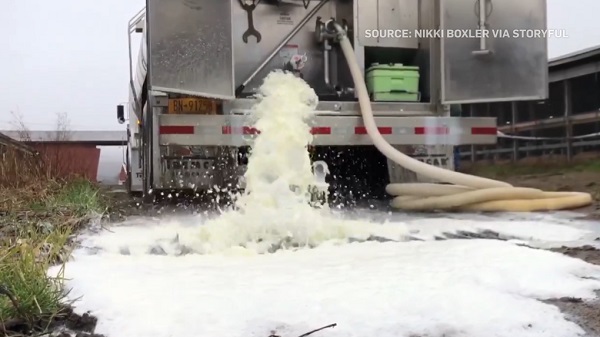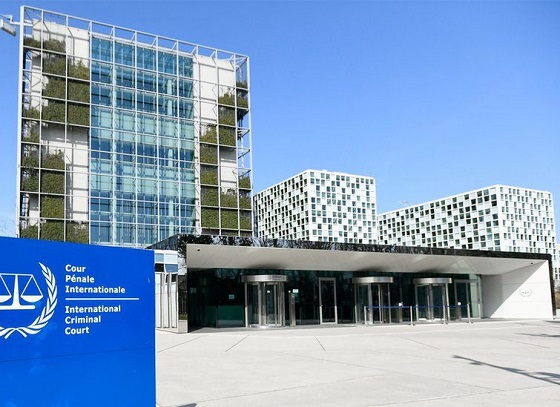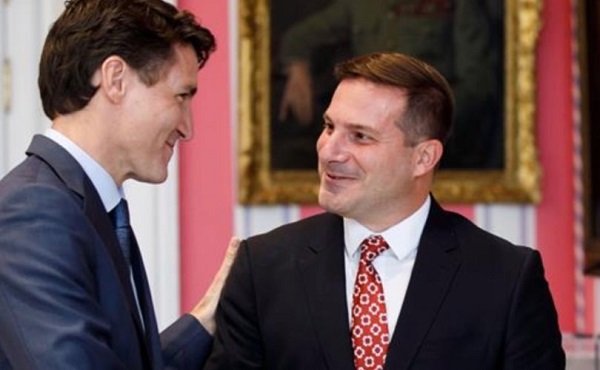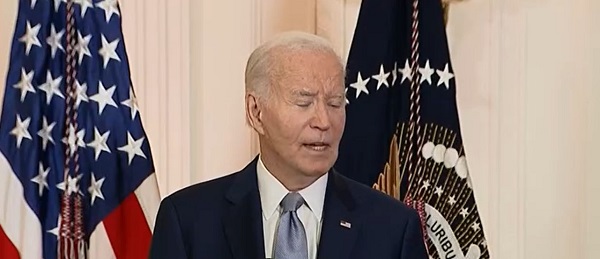Agriculture
Time to End Supply Management

From the Frontier Centre for Public Policy
According to a 2021 report from the Montreal Economic Institute, Canadian families pay up to $600 more per year on dairy products alone due to supply management.
The New Democrats and the Liberals have pledged to tackle inflation, curb price gouging, and address child poverty. Leaders like Jagmeet Singh have railed against corporate greed while Prime Minister Justin Trudeau’s government has introduced programs claiming to feed your children.
But despite these announcements, food affordability remains a serious problem in Canada. If our political leaders are truly committed to making nutritious food accessible for all Canadians, they must confront the largely ignored factor: Canada’s supply management system.
Supply Management Hurts Families
Supply management, which governs the production and pricing of dairy, eggs, and poultry in Canada, was designed to stabilize farmers’ incomes. However, it now acts as an unnecessary burden on consumers, artificially inflating the cost of essential food items. Farmers are given strict quotas on how much they can produce, and sky-high tariffs—often more than 200%—are imposed on imports.
This creates a closed market that keeps prices far higher than in a free-market system. According to a 2021 report from the Montreal Economic Institute, Canadian families pay up to $600 more per year on dairy products alone due to supply management. This is no small sum to households already feeling the pinch.
To put it in perspective, a litre of milk in Canada costs between $1.50-$2.50, compared to USD 1.00 (around $1.35 CAD) in the United States, where such market controls don’t exist. The cost of other staples, such as eggs and chicken, follows the same pattern, with Canadians paying significantly more than their American counterparts.
These artificially high prices disproportionately affect families struggling. As inflation continues to drive up the cost of housing, fuel, and other essentials, paying extra for basic food becomes the tipping point between having three meals a day or skipping meals to cover rent or bills.
The Conservative Opportunity: Free Markets and Family Values
The Conservative Party has historically championed free markets and policies promoting family well-being, but they also support the food cartels.
In a genuinely free market, prices are determined by supply and demand, leading to lower consumer costs and more production efficiency. Ending supply management would achieve both goals.
While Conservatives have long supported free markets, they have been reluctant to challenge supply management, largely due to political concerns in Quebec, where the system is popular among producers. Being pro-trade and supporting supply management are incongruous political positions.
However, with the Conservatives drawing closer to forming government, potentially without significant electoral support from Quebec, now is the time for a strategic shift. Shedding the protectionist policies would be a bold and forward-thinking move to distinguish the party as serious about free markets and family welfare.
It would also send a powerful message to voters across the country, particularly in regions where food insecurity is rising. Conservatives could frame the policy change as a direct effort to reduce food prices, ease the burden on low-income families, and protect Canadian consumers from the high costs supply management imposes.
The Ethical Case: Dumping Food While Canadians Go Hungry
Perhaps the most shocking aspect of supply management is the appalling waste it produces. To keep prices high, in 2023 alone, tens of millions of litres of milk were discarded—wasted food that could have gone to Canadians in need. This is an unconscionable practice in a country where nearly 2 million people rely on food banks to survive. How can wasting food while so many families struggle to afford basic groceries be justified?
This waste flies in the face of compassion and fairness, and contradicts the principles of a free market.
The Bloc Quebecois’ Game
Given that the significant dairy industry in Quebec benefits immensely from supply management, the Bloc Quebecois is seeking to leverage the weakness of the Trudeau minority in exchange for a Bloc bill, Bill C-282, that would shield supply management from future changes. The Bloc Québécois Bill C-282 wants to amend the Trade and Development Act. Reportedly, it has support from all parties in Parliament.
One of the key setbacks is the restriction supply management places on open market access. It hinders the ability to fully embrace free trade agreements. A primary objectives of Bill C-282 is to prevent the Canadian government from making concessions in international trade agreements that could undermine the supply management system. This is particularly relevant in trade negotiations where foreign countries often seek increased access to Canada’s agricultural markets.
Consequently, this limits the potential for growth in agricultural exports. Central Canada benefits the most from supply management, and although its trade reverberations hurt everyone, they seem to hurt Western producers the most.
A Call to Action for All Parties
For New Democrats and Liberals, the solution to supporting families and children through food affordability lies in targeting alleged corporate greed and expanding social programs. But if they are serious about addressing child poverty and food insecurity, they would confront supply management. Likewise, for Conservatives, ending supply management is a natural extension of their free-market impetus and commitment to family values.
The time for change is now. Regardless of party, all political leaders should recognize that dismantling supply management would be a direct, meaningful step toward making food more affordable for all Canadians, as well as maximizing agricultural chances to expand Canada’s exports. With the rising cost of living pushing more families into food insecurity, we cannot afford to let outdated policies continue to inflate prices, immorally perpetuate waste, and curtail chances for greater growth in Agrifoods.
Dismantling supply management would offer tangible relief to millions of Canadian consumers, particularly low-income families. All other parties should start by killing Bill C-282.
Marco Navarro-Génie is the Vice President of Research at the Frontier Centre for Public Policy
Agriculture
Restoring balance between renewable energy, agricultural land and Alberta’s iconic viewscapes

Alberta is known around the world for many things – some of the most breathtaking and iconic scenery on earth, a world-class agricultural industry that puts high-quality food on tables across the globe and a rich history of responsible energy development. Alberta is a destination of choice for millions of visitors, newcomers and investors each year.
To ensure Alberta’s continued prosperity, it is imperative that future energy development is balanced with environmental stewardship, protecting Albertans’ ability to use and enjoy their property, and safeguarding agriculture for continued food security.
Alberta’s renewable energy sector has grown rapidly over the past decade, yet the rules to ensure responsible development have not kept up. As a result, municipalities, agricultural producers and landowners across the province raised concerns. Alberta’s government is fulfilling its duty to put Albertans first and restore the balance needed for long-term success by setting a clear path forward for responsible renewable energy development.
“We are doing the hard work necessary to ensure future generations can continue to enjoy the same Alberta that we know and love. By conserving our environment, agricultural lands and beautiful viewscapes, our government is protecting and balancing Alberta’s long-term economic prosperity. Our government will not apologize for putting Albertans ahead of corporate interests.”
Amendments to the Activities Designation Regulation and Conservation and Reclamation Regulation provide clarity for renewable energy developers on new and existing environmental protections.
These changes will create consistent reclamation requirements across all forms of renewable energy operations, including a mandatory reclamation security requirement. Albertans expect renewable power generation projects to be responsibly decommissioned and reclaimed for future generations. Alberta’s government stands firm in its commitment to protect landowners and taxpayers from being burdened with reclamation costs.
“We want to protect landowners, municipalities and taxpayers from unfairly having to cover the costs of renewable energy reclamations in the future. These changes will help make sure that all renewable energy projects provide reasonable security up front and that land will be reclaimed for future generations.”
Alberta’s government committed to an ‘agriculture first’ approach for future development, safeguarding the province’s native grasslands, irrigable and productive lands. The protection of agricultural land is not only essential to food production, but to environmental stewardship and local wildlife protection.
The Electric Energy Land Use and Visual Assessment Regulation follows this ‘agriculture first’ approach and enhances protections for municipalities’ most productive lands, establishing the need to consider potential irrigability and whether projects can co-exist with agricultural operations. These changes are critical to minimizing the impacts of energy development on agricultural lands, protecting local ecosystems and global food security. With these new rules, Alberta’s farmers and ranchers can continue to produce the high-quality products that they are renowned for.
“Our province accounts for nearly 50 per cent of Canada’s cattle, produces the most potatoes in the country, and is the sugar beet capital of Canada. None of this would be possible without the valuable, productive farmland that these new rules protect. Understanding the need for an ‘agriculture first’ approach for energy development is as simple as no farms, no food.”
The new Electric Energy Land Use and Visual Assessment Regulation also establishes specific guidelines to prevent projects from impacting pristine viewscapes. By establishing buffer zones and visual impact assessment zones, Alberta’s government is ensuring that industrial power projects the size of the Calgary Tower cannot be built in front of UNESCO World Heritage sites and other specified viewscapes, which will support the continued growth and success of Alberta’s tourism sector.
As Alberta’s population and economy grows, it is critical that the province has the additional power generation needed to meet increasing demand. Power generation must be developed in a balanced and responsible manner that promotes environmental stewardship, ensures the continued enjoyment of Alberta’s beautiful landscapes, and safeguards food security by protecting Alberta’s valuable agricultural lands. By encouraging the responsible development of additional power generation with these new regulations, Alberta’s government is listening to Albertans and ensuring the electricity grid is affordable, reliable and sustainable for generations to come.
Summary of Policy Changes
Following the policy direction established on February 28, 2024, Alberta’s government is now implementing the following policy and regulatory changes for renewable power development:
Agricultural lands
The new Electric Energy Land Use and Visual Assessment Regulation takes an “agriculture first” approach.
• Renewable energy developments will no longer be permitted on Land Suitability Rating System (LSRS) Class 1 and 2 lands unless the proponent can demonstrate the ability for both crops and/or livestock to coexist with the renewable generation project,
• In municipalities without Class 1 or 2 lands, Class 3 lands will be treated as Class 1 and 2.
• An irrigability assessment must be conducted by proponents and considered by the AUC.
Reclamation security
Amendments to the Activities Designation Regulation and Conservation and Reclamation Regulation create consistent reclamation requirements across all forms of renewable energy operations, including a mandatory reclamation security requirement. There will be a mandatory security requirement for projects located on private lands.
• Developers will be responsible for reclamation costs via a mandatory security or bond.
• The reclamation security will either be provided directly to the province or may be negotiated with landowners if sufficient evidence is provided to the AUC.
Viewscapes
The Electric Energy Land Use and Visual Assessment Regulation ensures pristine viewscapes are conserved through the establishment of buffer zones and visual impact assessment zones as designated by the province.
• New wind projects will no longer be permitted within specified buffer zones.
o Other proposed electricity developments located within the buffer zones will be required to submit a
visual impact assessment before approval.
• All proposed electricity developments located within visual impact assessment zones will be required to submit a visual impact assessment before approval.
Municipalities
The AUC is implementing rule changes to:
• Automatically grant municipalities the right to participate in AUC hearings.
• Enable municipalities to be eligible to request cost recovery for participation and review.
• Allow municipalities to review rules related to municipal submission requirements while clarifying consultation requirements.
Agriculture
Saskatchewan potash vital for world food

From Resource Works
Fertilizer Canada says the fertilizer industry contributes $23 billion a year to Canada’s economy and provides over 76,000 jobs.
A small potash extraction company in Manitoba calls Saskatchewan “the Niagara Falls of potash in Canada.”
The current 10 mines in Saskatchewan produced around 13 million tonnes in 2023, accounting for some 33% of global potash production, and exported 95% of it to more than 75 countries.
Potash mine No. 11 in Saskatchewan is working toward production in late 2026. That’s the $14-billion Jansen mine, owned by BHP, located 140 kilometres east of Saskatoon. It aims to produce around 8.5 million tonnes a year to start, and as much as 16–17 million tonnes a year in future stages.
With potash used primarily in agricultural fertilizers, Saskatchewan’s output is a key ingredient in global food security. Fertilizer is responsible for half of the world’s current food production.
As Real Agriculture points out: “Fertilizer production is not only an economic driver in Canada, but it is also a critical resource for customers around the world, especially in the United States.”
This is particularly important as Russia’s war on Ukraine has raised doubts about reliable supplies of potash from Russia, the world’s No. 2 producer, which produced 6.5 million tonnes in 2023.
In fertilizers, the potassium from potash increases plant growth and crop yields, strengthens roots, improves plants’ water efficiency, and increases pest and disease resistance. It improves the colour, texture, and taste of food. Natural Resources Canada adds: “Potassium is an essential element of the human diet, required for the growth and maintenance of tissues, muscles and organs, as well as the electrical activity of the heart.”
Canada’s federal government has included potash as one of 34 minerals and metals on its list of critical minerals.
Fertilizer Canada says the fertilizer industry contributes $23 billion a year to Canada’s economy and provides over 76,000 jobs.
The potash operations in Saskatchewan are in the Prairie Evaporite Deposit, the world’s largest known potash deposit, formed some 400 million years ago as an ancient inland sea evaporated. The deposits extend from central to south-central Saskatchewan into Manitoba and northern North Dakota. These deposits form the world’s largest potash reserves, at 1.1 billion tonnes.
Manitoba’s first potash mine is close to bringing its product to market. The PADCOM mine is 16 kilometres west of Russell, Manitoba, near the Manitoba-Saskatchewan border. The Gambler First Nation has acquired a one-fifth stake in the project.
PADCOM injects a heated mixture of water and salt underground to dissolve the potash, which is then pumped to the surface and crystallized. CEO Brian Clifford says this process is friendlier to the environment than the conventional method of mining underground and extracting ore from rock deposits.
Saskatchewan’s northern potash deposits are about 1,000 metres below the surface and are extracted using conventional mining techniques. To the south, deposits are anywhere from 1,500 to 2,400 metres deep and are mined using solution techniques.
PADCOM aims to produce 100,000 tonnes of potash per year, eventually growing to 250,000 tonnes per year. However, PADCOM president Daymon Guillas notes that across the Manitoba-Saskatchewan border, the Nutrien potash mine near Rocanville, Saskatchewan, produces five to seven million tonnes per year.
“In 36 hours, they produce more than we do in a year. Saskatchewan is the Niagara Falls of potash in Canada. Our little project is a drip, just a small drip out of the faucet.”
(New Brunswick once had a small potash mine, but it closed in 2016.)
Real Agriculture says: “Canadian-produced potash remains vital to the U.S.’s ability to produce enough corn for feed, ethanol production, and export requirements, at a time when the U.S. heightens its focus on reducing exposure to international integrated supply chains in favour of U.S. domestic supply chains.”
Writer Shaun Haney continues: “For the U.S. corn farmer, Canadian-produced potash is critical for achieving the top yields. According to StoneX, over the past three years, Canada accounts for roughly 87 per cent of potash imports by the U.S., while Russia sits at 9.5%.”
-

 Alberta23 hours ago
Alberta23 hours agoProposed $70 billion AI data centre in MD of Greenview could launch an incredible new chapter for western Canadian energy
-

 COVID-192 days ago
COVID-192 days agoAustralian doctor who criticized COVID jabs has his suspension reversed
-

 Business2 days ago
Business2 days agoMassive growth in federal workforce contributes to Ottawa’s red ink
-

 Alberta19 hours ago
Alberta19 hours agoYour towing rights! AMA unveils measures to help fight predatory towing
-

 Frontier Centre for Public Policy2 days ago
Frontier Centre for Public Policy2 days agoFalse Claims, Real Consequences: The ICC Referrals That Damaged Canada’s Reputation
-

 COVID-192 days ago
COVID-192 days agoFormer Trudeau minister faces censure for ‘deliberately lying’ about Emergencies Act invocation
-

 National2 days ago
National2 days agoWhen’s the election? Singh finally commits. Poilievre asks Governor General to step in
-

 Daily Caller2 days ago
Daily Caller2 days agoParty Leaders Exposed For ‘Lying’ About Biden Health



